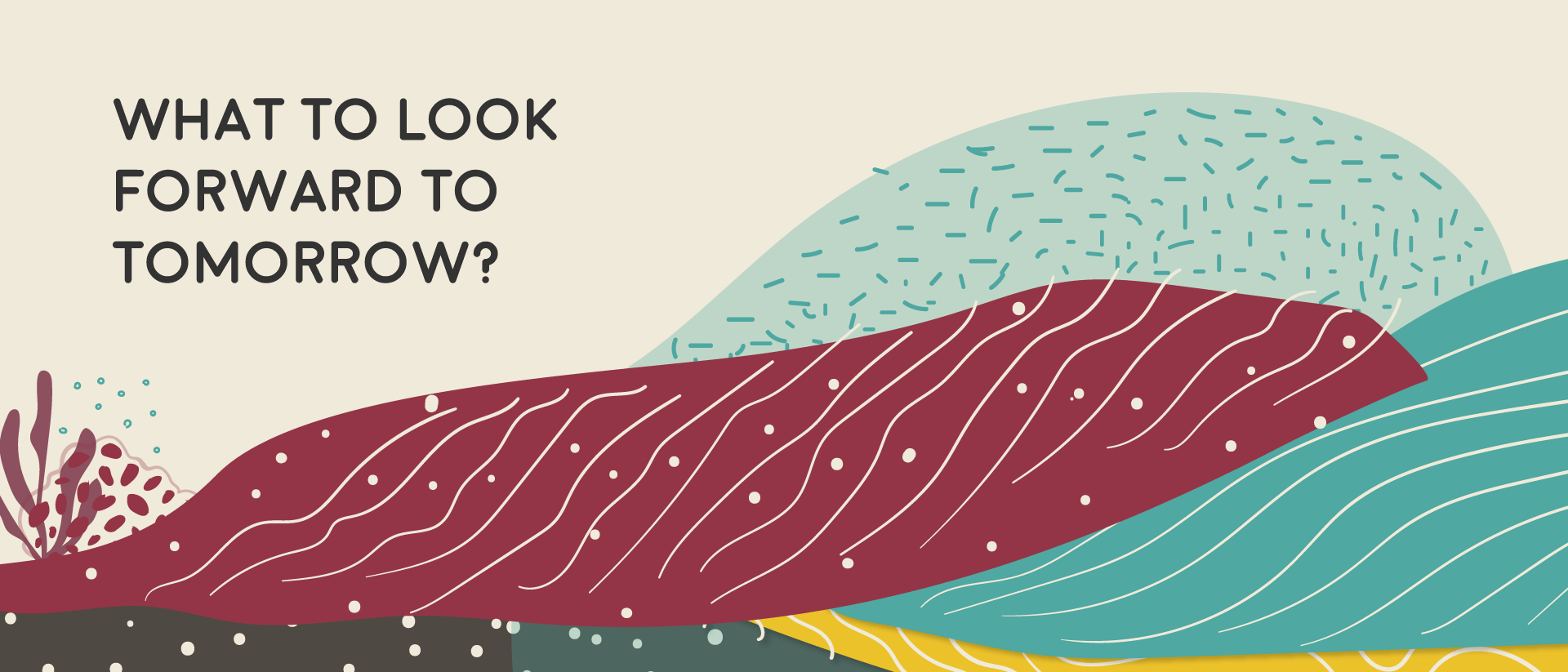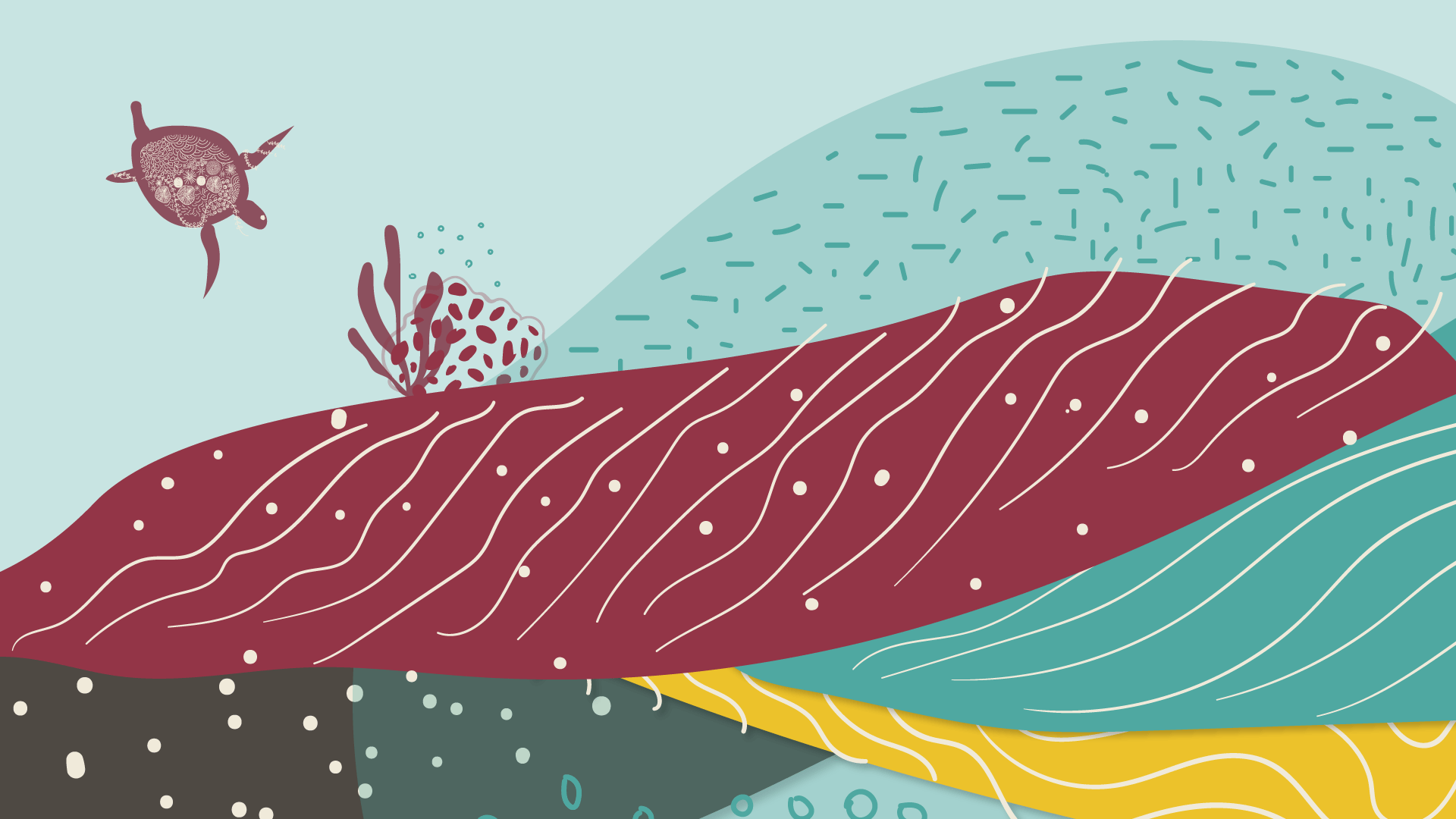Dish of the Day 2 - The collective future of the network
Welcome to Day 2 of the APC Member Convening 2021! We are glad to see you back here, to be served the second Dish of the Day, cooked up collectively with all the diverse ingredients that this inspiring network brings into the kitchen.
🎵 Why not listen to some good music while you read the Dish of the Day? Remember that we are adding songs here throughout the week; please add your own!
The plenary: Members collaboration(s) and building of capacity - The collective future of the network
Our second plenary of the week began with APC’s Jennifer Radloff leading us into some breathing exercises followed by a video of Toni Giselle Stuart reciting their poem, “Ocean Home”. Then we had an exercise for participants to respond to some key questions raised by APC Executive Director Chat Garcia Ramilo, including what is the importance of regional networks, where are we in our communities locally, how has advocacy changed with the pandemic, how do we channel our network to share coping strategies and resources, and finally, who else should we be bringing within the APC network?
Participants reacted to these questions with ideas and their own questions, such as, “How does our double identity as an organisation and a network play out for better or worse in these times, and at our current size of organisation and of network?” An example of learning from local contexts that was cited was the work that APC’s Women's Rights Programme has done with the Transfeminist Network in Brazil, where some learnings included:
- Creativity is essential in the face of adversity
- Working locally and sharing globally and adapting to local contexts is powerful
- Building feminist infrastructures of care is so critical in these times of pandemic.
As one participant noted, “It's interesting to see these questions popping up… In science many times people have been fooled because the questions they were asking were too narrow and didn't allow scientists to see beyond their noses, something that we usually find out in hindsight. This is why this process here of formulating questions is really the essence of what we should be doing as a network. These will be the guiding questions that will guide us through the next period.”
Next, the vice-chair of APC's executive board of directors, Bishakha Datta, presented a "provocation" on corporate technological power and how it’s become increasingly evident how much corporates rule the world, while sitting one layer behind visible sources of power like governments. The big challenge of the last decade has been its manifestation in surveillance capitalism (how companies turn our bodies, minds, thoughts, desires and emotions into data for profit), how our freedoms are dependent now not only on governments but also digital platforms, and how the corporatised internet of WhatsApp, Facebook, Instagram, TikTok, etc. is "the internet" for most people now.
One person responded with the suggestion that the APC network could do an interposition between the corporates and grassroots, and we can have our own infrastructure. Another agreed that when they built a local community network, children said they could now access Facebook – they didn’t know any internet beyond that. Some of this might be changing with decentralised and federated technologies, such as for domains, and alternatives to Twitter like Mastodon. Another point was the importance for users to have symmetric bandwidth connections for both download and upload speeds, so that they are not only consumers but can be creators too. Another person criticised governments eager to dismantle citizen privacy to give corporates more data.
One member made the contrarian argument that they can’t recommend tools like Mastodon because they are not very good. “There are lots of problems with the big monopolistic corporations, but there are also lots of smaller corporations that share many of our values and in my opinion should be treated as allies, not enemies. I'd be laughed at if I recommended most of the tools we prefer at APC.”
Some others agreed that substandard tools cannot be credibly recommended to grassroots groups or to social entrepreneurs, that sometimes smaller corporates can be allies, and these days even some non-profits are considering organising as companies to access different funding.
It was helpful at this point for the group to differentiate between smaller corporates who might share our values and Big Tech and other major conglomerates (like telecoms), who despite lip service almost never want to share power or cede any control. As for FLOSS (free/libre and open source) technologies, is there a middle ground to explore to keep making them better and competitive with private tools? One response was that perhaps we should oppose behaviours (rather than corporate identities) we disagree with, while supporting well-behaved partners, whether non-profit or companies.
Another participant cited "middle ground" examples from within the APC network like Pangea, Nodo TAU, Riseup and Sulá Batsú. Someone else agreed that APC members and the network are good in experimenting and showing new paths and options, such as open technologies and community networks.
Overall the group agreed that there are different possible approaches here and no "one" answer. One participant emphasised that APC needs to be much tougher about Big Tech. One of APC’s strategic outcome areas is that “the internet is recognised and governed as a global public good in an inclusive, transparent, democratic and accountable manner.” This is a rich conversation and it needs to continue. As the same person concluded, “The public good is important, we've always valued that, it's consistent. We preserve what we value.”
The session concluded with a poem about networks by Haruna Hadejia of the Centre for Information Technology and Development (CITAD), who read it first in Hausa, a major Nigerian language. Somehow it managed to to sum up what was an incredibly stimulating plenary session:
Netwok, hanya mai ban mamaki,
Shi ba mutum ba,
Amma yana magana.
Netwok, idan yaga dama
Sai ya barka kayi aki,
Idan yaki, sai ya kulle kansa.
Netwok kenan
Mai halin tsiya da na Kirki.
(English translation)
Network, an amazing path,
Not human,
But speaks any language.
Network, if it so wishes,
Can allow you to work,
Or deny you access.
So is network,
With twin faces (the good and the bad).
More highlights from day 2 here!
On Day 3 of our convening, we will have many diverse and inspiring sessions from 6:00 to 18:30 UTC organised by members Digital Empowerment Foundation, Body & Data, Jokkolabs Banjul, Servelots, individual member Joy Liddicoat, Código Sur with GreenNet and May First Movement Technology, Derechos Digitales with Rhizomatica and eQualitie, PROTEGE QV and CIPESA.
We want to apologise to you that the session “Global Platforms, Algorithms and Slave Labor on the Job” had to be cancelled on Day 2 and will be re-scheduled. We will inform everyone tomorrow about the new day and time of the session through the mailing list and on the chat platform.
We will have two films screenings tomorrow! Starting at 7:00 UTC, you are invited to watch “Invisible Mundu”, directed by Varun Kurtkoti (synopsis here) and at 7:30 UTC will be “Pattani Calling”, directed by Vijitra Duangdee (synopsis here)
We will have only one plenary from 10:00 to 11:30 UTC in Ama Waterfall: Members Collaboration(s) and Building of Capacity. This plenary will focus on the “Collective Future of the Network” and member interconnections exploring member-to-member and member-to-staff intentional collaboration and building of capacity, putting transformation and change at the core of members' joint initiatives.
We are extending a special invitation to tomorrow's second "Come together" pop-up, a walk through the APC guidelines on planning and designing online events, with magic brought by azar and nadege at 17:30 in Vos Cave.
If you'd like to see an overview of the agenda for tomorrow in your own time zones, please go to the schedule here.
Another special shout-out goes to the pop-up discussion session that will take place at 7:00 UTC in Vos Cave on practices and reflections of self and collective care, where APC's Jenny and Cyn will be holding space for members to share the care choices that they have been engaging in along with their favourite practices of self, collective and organisational care.
If you feel inspired and have some spare time, please send us what you have learned about caring for yourself and share care strategies within the network at orgcare@apc.org.
Remember that if you were unable to attend the plenaries, we have set up a Mattermost channel that participants can join to participate asynchronously. Please feel welcome to add your thoughts and suggestions!
Almost there! There is a link to a shared folder here for you to upload content (e.g. previous work, posters, documentaries, etc.) (password: APCconvening).
Last but not least: the Best Futures Awards nominations are on! The Best Futures Awards are a recognition we share with one another. During these five days you will attend many sessions, speak and listen to many, many people. You will discover new ways of thinking, doing, resisting, resting and creating changes. We have thought of four main awards: Solidarity, Collaboration, Innovation and Creativity. Help us to choose the person, the collective or the organisation that you believe deserves one or more of them. When attending a plenary, an interconnections session or a pop-up, think about who you would like to acknowledge and share your thoughts with the Best Futures Awards committee. Also, if you would like to be part of the team of "talent scouts" to help us gather nominations, join us and let’s look around together. And yes, the Best Futures Awards have prizes! You can add your nominations for the Best Futures Award here.
And that's it for now! Come back here tomorrow for your Dish of the Day to catch up on anything you may have missed from Day 3!



